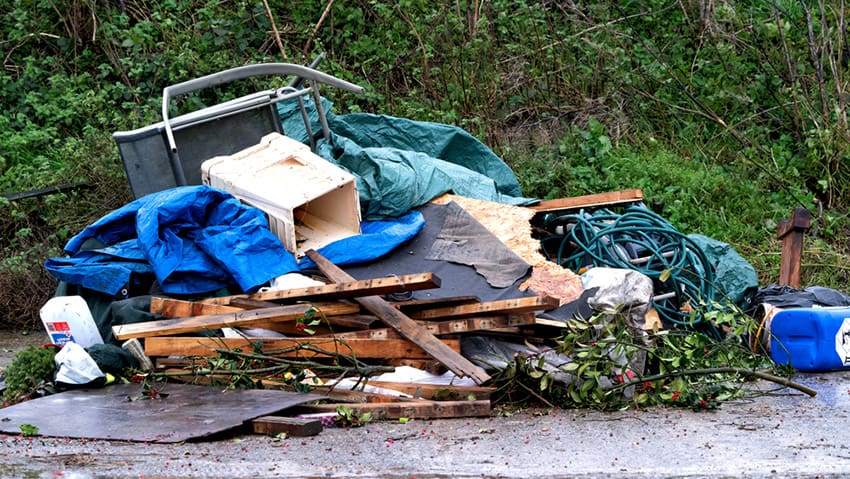According to a House of Lords investigation, sophisticated criminal networks are dumping millions of tonnes of waste in the British countryside every year, causing losses to the UK estimated at £1 billion annually.
The Committee on Environment and Climate Change found that large-scale fly-tipping operations are increasingly linked to organized crime groups involved in money laundering, drug trafficking and modern slavery.
The inquiry estimated that around 38 million tonnes of waste is dumped illegally each year – enough to fill Wembley Stadium 35 times – but warned that the real figure may be far higher due to widespread under-reporting.
Baroness Sheehan, chair of the committee, said waste crime has become a “low-risk, high-reward” activity for organized criminals, who operate with “complete impunity” amid weak enforcement and limited resources at the Environment Agency.
One of the worst cases cited in the investigation involved a 15-foot-high pile of garbage dumped in Kent woodland, which is home to endangered nightingales. Despite public reports in 2020, it took four years for regulators to take action.
Residents told colleagues they feared retaliation for speaking out. Les Bashford, a gamekeeper on the Surrey-Kent border, who faces fly-tipping “almost weekly”, said confronting offenders often results in violence.
“At least 75 percent of the people who dump here are known to the police,” he said. “If you catch them and they have already given information, they will do whatever they can to escape.”
The Lords inquiry concluded that the £1bn annual cost of waste crime includes both the public cost of cleaning up sites and tax revenue lost through unpaid landfill levies and unlicensed disposal operations.
The committee said even legitimate waste companies are losing millions to criminal competitors due to illegal dumping.
Dan Cook of the Chartered Institute of Waste Managers called for stricter enforcement and more consistent national leadership.
“The negative impact that this crime has on legitimate operators and local economies, as well as the environmental damage it causes, means that tackling waste crime must be a priority for the government,” he said.
Peers urged ministers to introduce a dedicated waste crime hotline, a digital tracking system to monitor waste from origin to disposal, and quarterly targets and progress reports for the Department for Environment, Food and Rural Affairs (Defra).
The Committee also recommended a review of whether the landfill tax system is inadvertently encouraging illegal dumping by making legal disposal prohibitively expensive.
Baroness Sheehan said: “Waste crime has been given a seriously low priority despite the significant environmental, economic and social costs. The government must act now – there is no time to waste.”
A Defra spokesperson said the government is already “tightening the net” on waste gangs as part of its turnaround plan.
“We're helping councils crack down on fly-tipper vans, funding more Environment Agency enforcement officers, and toughening penalties for those who transport waste illegally,” the spokesperson said. “We will carefully consider the recommendations of this report and respond in due course.”
The Lords' findings add to growing concern about the UK's waste system, where gaps in enforcement have allowed criminals to profit from illegal dumping while harming the environment and local communities.










